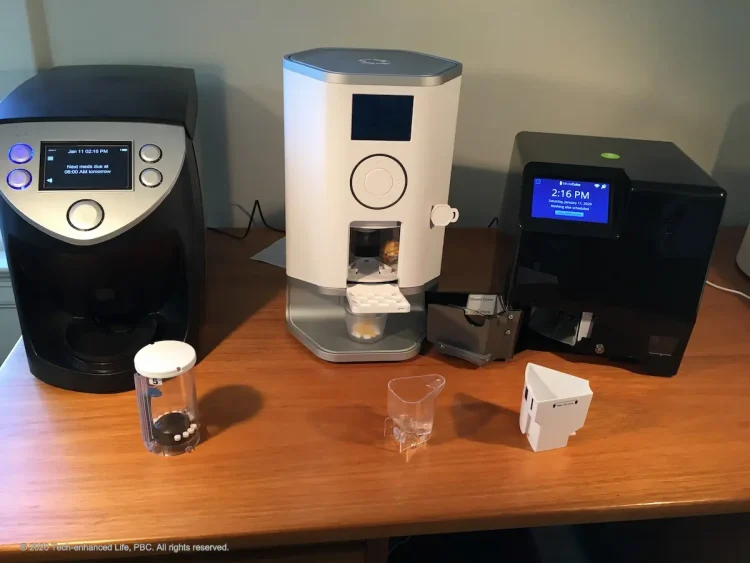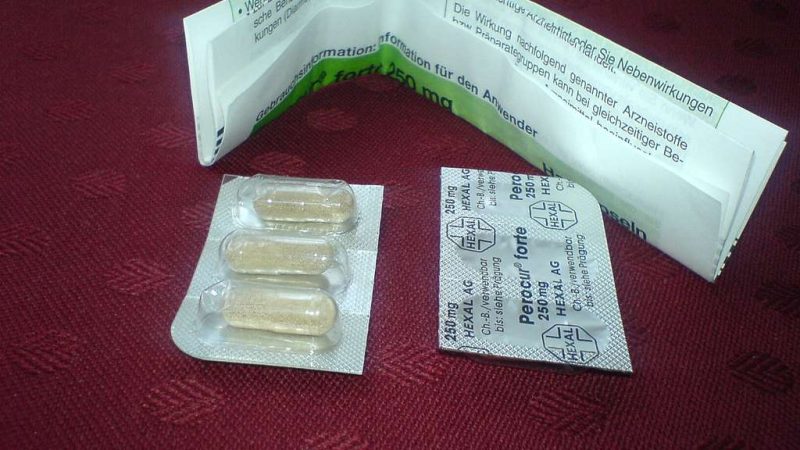Timed Medication Dispenser: Revolutionizing Medication Management

In the fast-paced world we live in today, managing health and medication is a challenging task for many, especially for elderly individuals or those with chronic conditions. Timely and accurate medication intake is critical for managing various medical conditions. With the advent of technology, timed medication dispensers have emerged as a game-changing solution to streamline medication management, ensuring patients adhere to prescribed schedules and avoid potential health risks.
This article explores what a timed medication dispenser is, how it works, its benefits, the types available in the market, and how it is transforming medication management for individuals, caregivers, and healthcare providers alike.
What is a Timed Medication Dispenser?
A timed medication dispenser is an electronic device designed to dispense prescribed medications at specific times throughout the day. These dispensers are programmed to release the correct dose of medication based on a pre-set schedule, ensuring the user receives their medication on time and in the correct dosage.
The device is particularly helpful for individuals who need to take multiple medications throughout the day, such as seniors with chronic health conditions, people with cognitive impairments, or those who struggle with keeping track of medication schedules. By automating the process of medication administration, these dispensers reduce the likelihood of human error, such as missing a dose, taking the wrong dose, or taking medication at the wrong time.
How Does a Timed Medication Dispenser Work?
The working mechanism of a timed medication dispenser is relatively straightforward but highly effective. Here’s a breakdown of the process:
- Programming the Dispenser: The dispenser is typically programmed through a user-friendly interface, either by the patient, caregiver, or healthcare provider. The user enters the prescribed medication schedule, including times of day, dosage, and any other relevant instructions. Some devices allow for more detailed scheduling, such as reminders for food intake, and can accommodate multiple medications and different types of pills (e.g., capsules, tablets, or liquids).
- Loading the Medication: Once the dispenser is programmed, the user or caregiver loads the medications into designated compartments within the device. These compartments are usually organized in such a way that different medications for different times of the day can be loaded separately, reducing confusion.
- Dispensing the Medication: At the programmed time, the device alerts the user with a sound, vibration, or light to indicate that it is time to take the medication. The device then dispenses the correct dose from the appropriate compartment. Some dispensers automatically pour out the pill(s), while others may release a pre-measured amount of liquid medication.
- Reminders and Alerts: In addition to dispensing the medication, many devices have reminder features, such as visual or auditory alerts that remind the user to take their medication. These alerts can also notify caregivers if a dose is missed, ensuring continuous monitoring of medication adherence.
- Tracking and Documentation: Many advanced timed medication dispensers have tracking capabilities, recording when the medication was dispensed, when it was taken, and if any doses were missed. This data can be accessed by caregivers, healthcare providers, or family members to ensure the patient is following the prescribed regimen.
Benefits of Timed Medication Dispensers
Timed medication dispensers provide a wide array of benefits for users, caregivers, and healthcare providers. Here are some of the most significant advantages:
1. Improved Medication Adherence
One of the main benefits of a timed medication dispenser is its ability to enhance medication adherence. Forgetting to take medication or taking the wrong dose can have serious consequences, especially for people with chronic conditions or those who are elderly. A medication dispenser ensures that patients take their medication on time and in the right dose, reducing the likelihood of missed or incorrect doses.
2. Reduces Medication Errors
Medication errors are one of the leading causes of adverse health events, especially in older adults who may take multiple medications daily. Timed medication dispensers can significantly reduce errors related to missed doses, wrong medications, or incorrect dosages. The automation provided by these dispensers ensures that the right medication is dispensed at the right time.
3. Convenience for Caregivers
For caregivers, managing the medication of elderly or ill individuals can be an overwhelming task, especially if the person requires multiple medications. A timed medication dispenser provides much-needed relief by automating the process, allowing caregivers to focus on other aspects of care. Additionally, the reminder alerts ensure that caregivers are aware of missed doses or any other issues related to medication intake.
4. Increased Independence for Patients
For patients, especially those who are elderly or suffer from cognitive impairments, a timed medication dispenser can offer increased independence. These devices allow patients to manage their own medication schedules, which can be empowering and reduce their reliance on others. With the dispenser automatically handling the time-sensitive task of dispensing medication, patients can feel more in control of their health.
5. Better Health Outcomes
By ensuring medication adherence, timed medication dispensers help patients follow their treatment regimens more closely. This leads to better health outcomes, such as improved symptom management and fewer hospitalizations due to medication errors or missed doses. For chronic disease management, consistent medication intake is crucial in maintaining optimal health and preventing flare-ups or complications.
6. Customization for Complex Regimens
Some individuals need complex medication regimens that involve multiple doses throughout the day or night. Timed medication dispensers can be programmed to accommodate these regimens, making it easier for patients to follow their prescribed schedules. These dispensers can handle varying frequencies, from daily medications to those that require multiple doses throughout the day.
Types of Timed Medication Dispensers
There are various types of timed medication dispensers available on the market, ranging from simple pillboxes with basic timers to high-tech, fully automated dispensers. Below are some of the most common types:
1. Basic Timed Pill Dispensers
These are simple devices designed to remind the user to take their medication at scheduled times. These dispensers typically have one or more compartments for pills, and they emit an alert when it is time to take the medication. Some may even rotate to provide a specific compartment containing the next dose. These devices are ideal for those who have a relatively straightforward medication schedule and need a simple reminder system.
2. Automated Pill Dispensers
Automated pill dispensers are more advanced devices that can hold a larger number of pills and are capable of sorting, organizing, and dispensing medications automatically. These dispensers can handle multiple doses per day and release pills from specific compartments at the right time. They also provide alerts and reminders and can track medication adherence. Some devices have features like built-in cameras or sensors to detect if a pill has been removed, ensuring that the patient took the correct dose.
3. Smart Timed Medication Dispensers
Smart dispensers go a step further, integrating with smartphones, tablets, or other connected devices. These dispensers can be monitored and controlled remotely, allowing caregivers or healthcare providers to check adherence and make adjustments to the medication schedule. Some devices send notifications or alerts if a dose is missed, providing real-time data to ensure better medication management. The smart technology often includes features such as voice reminders, GPS tracking for elderly patients, and integration with health apps.
4. Portable Timed Medication Dispensers
For people on the go, portable timed medication dispensers are a convenient option. These compact devices can be easily carried in a bag or pocket and are ideal for individuals who travel frequently. Despite their small size, they still provide the functionality of a larger dispenser, with features like reminder alerts and automatic dispensing.
Considerations When Choosing a Timed Medication Dispenser
While timed medication dispensers offer numerous benefits, selecting the right device is crucial for ensuring it meets the user’s specific needs. Here are some factors to consider:
1. Ease of Use
The dispenser should have a simple and user-friendly interface. It should be easy to program, refill, and clean. The device should also provide clear and loud alerts to notify the user when it is time to take medication.
2. Capacity and Compartments
For individuals who need to take multiple medications daily, it’s essential to choose a device that can accommodate multiple doses and compartments. The device should also allow for flexible scheduling to accommodate medications taken at different times of the day.
3. Safety Features
Look for dispensers with safety features such as childproof locks, tamper alerts, and medication tracking. These features are particularly important for households with young children or patients with cognitive impairments.
4. Integration with Health Apps
Some advanced dispensers integrate with health apps or online platforms. If the user or caregiver prefers real-time tracking and updates, it might be beneficial to choose a device with smart capabilities, such as remote monitoring via a smartphone app.
5. Cost and Insurance Coverage
Finally, the cost of a timed medication dispenser can vary widely depending on its features and functionality. While some devices may be covered by insurance, others might require out-of-pocket expenses. It’s essential to consider the cost in relation to the features offered and the potential long-term health benefits.
Conclusion
Timed medication dispensers are transforming the way we manage our health by ensuring timely, accurate medication administration. They offer numerous benefits, including improved medication adherence, reduced errors, and greater convenience for both patients and caregivers. With various types of dispensers available, from basic pillboxes to advanced smart dispensers, there is a solution for nearly every individual’s needs.
As technology continues to evolve, we can expect further innovations in medication management tools. These advancements will likely enhance the accessibility and affordability of timed medication dispensers, making them an even more vital resource in the world of healthcare. By embracing these devices, patients can enjoy better health outcomes, increased independence, and a higher quality of life, all while reducing the risks associated with medication errors.





